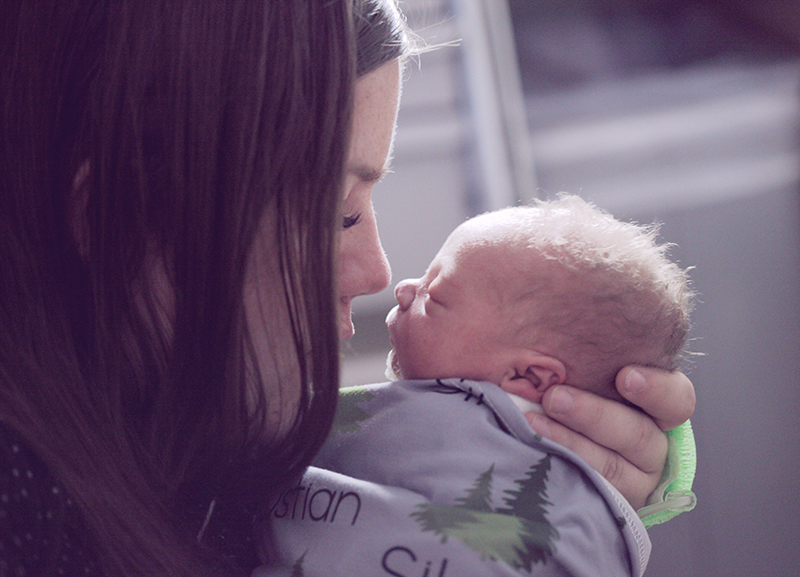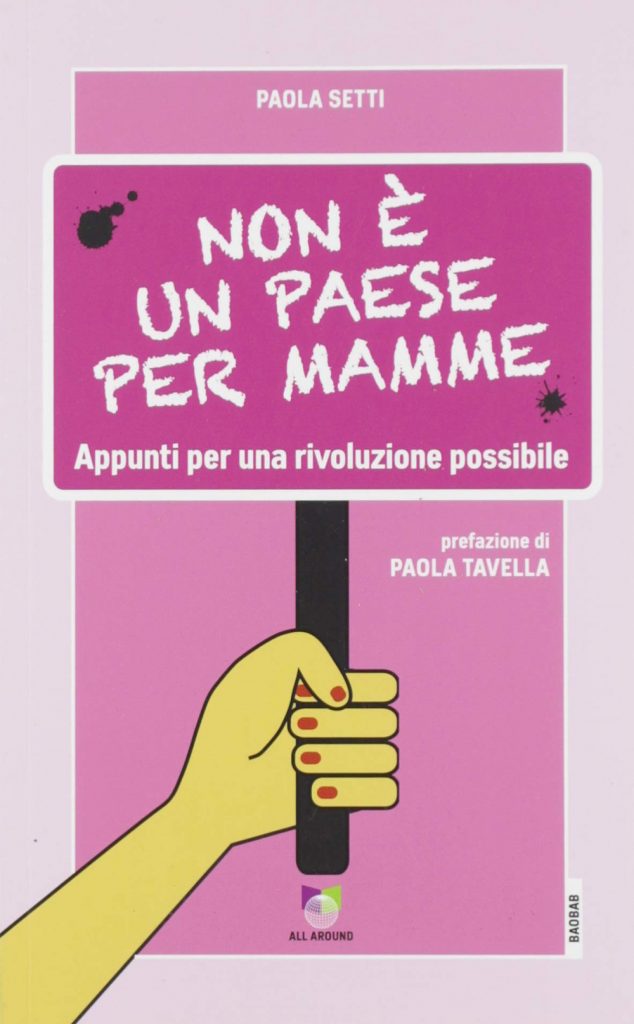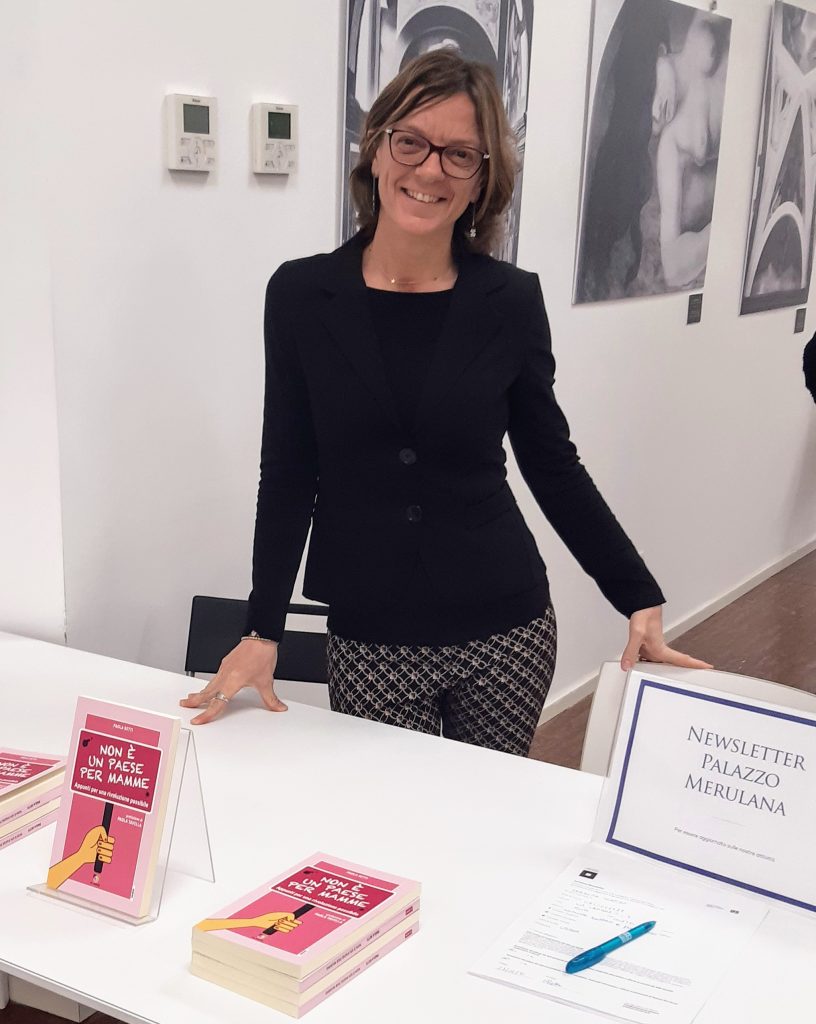Become mum it is one of the most extraordinary experiences a woman can have. Able to rewrite the world around her: when you have a child, together with maturity and responsibility, a sense of fullness, of integrity.
Most of the time, however, the path is bumpy. For many, 'becoming a mother' is one test di courage, even more so in times and places that do not know how to detach themselves from a patriarchal vision, both of the family and of the social fabric.

Compared to the Nordic countries, Italy is Mammone country. And not in a good way. It is in the sense that the mother is a guarantee figure, a free port in whose arms a multitude of children (even overgrown ones) are sure to always find love and consolation. The staple of the family. Too still, sometimes. And it is not comfortable for women who are often put in a position to say no to their aspirations in order to agree with tradition. The Italians are asked to arrange the day, divide between the work of a mother and the work of a woman. For fear of losing a sweaty job, many postpone the choice, many end up not making it anymore. There is a lack of real services to support the world of women. And in the South the situation worsens.
If we want more Italians, if we want more children, ours today is a system to be rethought. A shared thought of the journalist and writer Paola Setti, author of It is not a country for mothers - Notes for a possible revolution (All Around Editions), a journey-investigation into the world of Italian mothers.
Paola Setti shines a frank light on what it means to be a woman in Italy. A book full of testimonies. Of mothers and workers who struggle to keep afloat. But they are also pages addressed to men, invited - encouraged - to be more present, as fathers and husbands.
It is not a country for mothers it invites us to think, to acknowledge that socio-cultural numbness must be overcome if in the future we care to preserve well-being and serenity. On Mother's Day, Paola Septa releases this to us interview exclusive to talk to us about how the project was born and to say - guarantee - to Italian mothers that a revolution is possible.

Where and how did the idea of writing this book come from?
When I became a mother I worked in Milan but I had the whole family, including my partner, in Genoa. The company for which I had worked with passion and commitment for over ten years did not meet me in any way with respect to this difficulty. So I resigned, throwing away years of study and hard work, and a profession in which I was very good. Then I looked around and realized that I was not alone: 30 thousand women a year leave their jobs because they are not put in a position to reconcile work and family. I wrote this book to give a voice to these women: those who leave their jobs because they are "guilty" of having children, those who manage work and children at the cost of an immense effort, those who do not have children because they have no grandparents to enslave or money to give to nannies, those who work at such a pace that their children do not see them grow up. This book starts with me but it's un fact-finding trip to Italy, to tell the anomalous normality of Italian women, from motherhood to gender equality, and collect ideas to change everything.
Is having a child a luxury or an act of courage nowadays?
Unfortunately both. Having a child costs money. If you don't have grandparents who can help you full time, you find yourself having to pay very high fees to the nursery but also a nanny. There are women who leave their jobs because they do not find it convenient, on an economic level, to work and pass the salary to structures and babysitters: 30 out of 100 leave their jobs for family reasons and only 4 out of 10 resume their activity. Then there are women who cannot leave work. And then either they have children at the cost of very high efforts, with all due respect to the Constitution which, in article 37, dictates the need to support working mothers in conciliation. Or they give up having children. In all cases it is a question of the serious infringement of a right. And the result is a worrying denatality: women have 1,3 children each, even though they want 2.
Are the life of a mother and the life of a career woman compatible?
In Italy very little. If you break the famous glass roof you do it at the price of seeing your children grow up in passing. I interviewed managers who told me how husbands raised their children, others who at some point in their careers quit because they were turning, as one of them defined them, into "ATM mothers", who to the children who maybe go to visit them in the office they say "Sorry but now I don't have time, here you have your credit card". An injustice, because every person should have the right to make a career and be at the same time with their children.

According to a research conducted by Valore D in order to analyze the world of work in Italy in the face of the Coronavirus emergency, smart working does not seem to be "smart" for women at all. It is estimated that one in three women even struggle more. What do you think?
I think that smart working could be a great conciliation tool, but it should certainly change the mentality of Italians. Men should stop thinking that if the wife is at home she will take care of everything, making the beds as well as bringing home her paycheck. And women themselves should get out of that type of approach to home and family management that always sees them as protagonists, all too often even centralizers, as if being the only ones to carry on the galley and housework were basically a power. .
In your book you write that the situation of us mothers could change if the world of work gives up male model in favor of parental model. What exactly do you mean by parental model?
Gender disparity, from the pay gap to the dismissal of women who become mothers, would be greatly reduced if we stopped thinking that the raising of children belongs only to women and also made men responsible. I'm just thinking about mandatory paternity leave. If instead of lasting only a week they lasted five months, perhaps employers would stop thinking of women as those who, having children, will become a problem for the company when they are absent, because the same absence would also affect men. On the other hand, fathers would be placed in a position, just as much as mothers, to exercise their right to be parents. Right that today in Italy is being violated, because men are expected to always give priority to the pace of work rather than to the daily needs of the family.
Is there a testimony among those you collected in the book that particularly impressed you?
The book is divided in two. A first part of testimonies and one of notes to make the revolution. In the first part, I like to remember Katya, who had four children and lost her job four times, and every time she sought him out at interviews she had her nose upset at her commitment as a mother multiplied by four. And Maura, squeezed in the press between an elderly mother with Alzheimer's and a small child being treated at Gaslini for a long-term illness. They struck me because they told me about their difficulties without anger or despair, but with the strength of resilience. In the second part of the book I loved Antonella Di Bartolo, the principal who created from scratch the comprehensive school of Brancaccio, a very difficult neighborhood in Palermo, convinced that we must start from school to build a better future for our children, but also a present worthy for moms. And then Amalia Ercoli Finzi, the mother of the Rosetta mission, who told me about her adventurous life as a student of stars and spaceships and a mother of four sons. But also some enlightened men, two managers and a lawyer, who each in their own sphere are waging the same battle as us.
The revolution is made with males. How to get them involved, more co-responsible let's say?
In a quarter of Italian couples, men do not carry out any domestic tasks and over 40 percent of fathers do not dedicate any time to looking after their children. In the family, men even delegate the care of their parents to women. Interviewees on gender equality, 90 percent say they support it, but when you then go into detail and ask them if it's okay to vacuum every now and then, 70 percent say no. Attitude that men bring to the workplace: in the book I describe a job interview with an entrepreneur who tells me: “In this company the problem is the c…, because everyone gets pregnant. You don't have children anymore, right? ". Fortunately, there are also some enlightened ones, young people who want to see their right to be a father recognized, managers who fight against the pay gap and for gender equality. It is from them that we must start again. S.positive action is needed which force and guide the cultural attitude of society in another direction.

Why do you think the situation of mothers in the Nordic countries is so different?
In the countries of Northern Europe the revolution took place. Positive actions by governments have guided the cultural front towards a horizon of gender equality. Just to say, at 16 pm everyone leaves work, women and men, because being with the family is considered a value: in Norway if you stay at work when others leave you are looked upon with suspicion, it means that you do not know how to organize your work in the right way and that you don't value your family. I'm not saying it's easy, I'm saying it's possible. There are many solutions: shifts, vertical part time, teleworking. Others can be invented. We encourage companies to activate co-woking and smart working and to eliminate the pay gap, we redesign cities and homes for women: as Annalisa Marinelli tells me in the book, mothers know more than urban planners!
How important it is to do network between mothers to change the situation, and how to make it possible?
Networking is crucial: the women I interviewed and many of those who read the book thanked me precisely for having acted as a collector and for giving them a voice, because the situation is known to everyone, only I assume it can't change. But it is also important to reason with males, especially those, let's say, of the "latest generation", undoubtedly more attentive to their role as fathers and companions. On how to make the change concrete, I want to say something that may seem absurd but of which I am more than convinced: we must use this long emergency from Covid-19, which is forcing us to rethink our whole life. While we invent new ways to live in safety, we can rethink the whole organization of work and conciliation. It took a pandemic to activate smart working, extend parental leave, provide economic support to families for babysitters and essentially put us all in a position to manage work and family without giving up a career or parenthood. Let's start from here, without losing this wealth of positive experiences.
Finally, a piece of advice that you feel you can give to one neoItalian mom ...
Don't give up. Do not compromise to leave your job in the face of difficulties, but neither do you want to give up your role as a mother. Seek the support of the community in which you live, networking between families. Fighting for your rights and denouncing the abuses, always. Putting a vacuum cleaner in her husband's hand: the term queen of the house is a scam, probably invented by prince charming. Let's put an end to the story and take back the freedom to be everything we want, present mothers and career women. It can.




